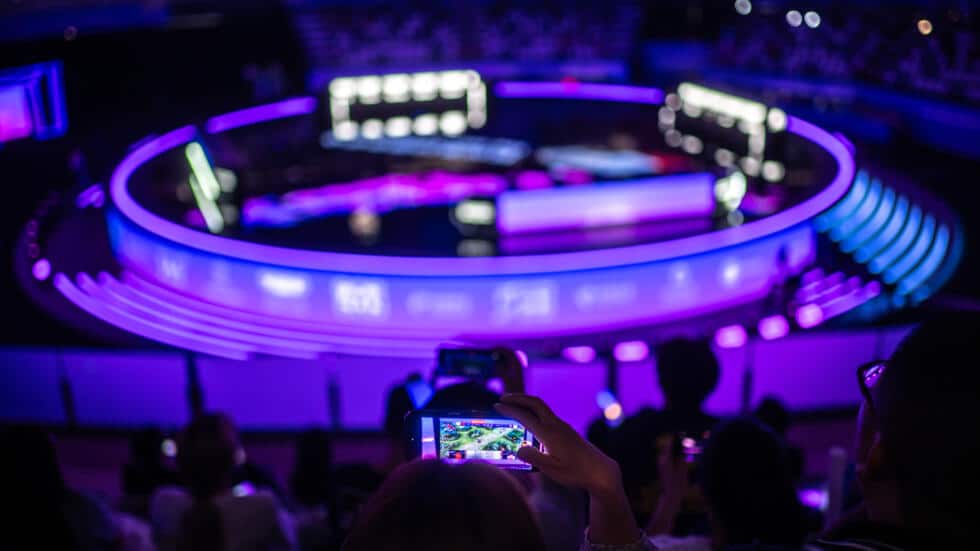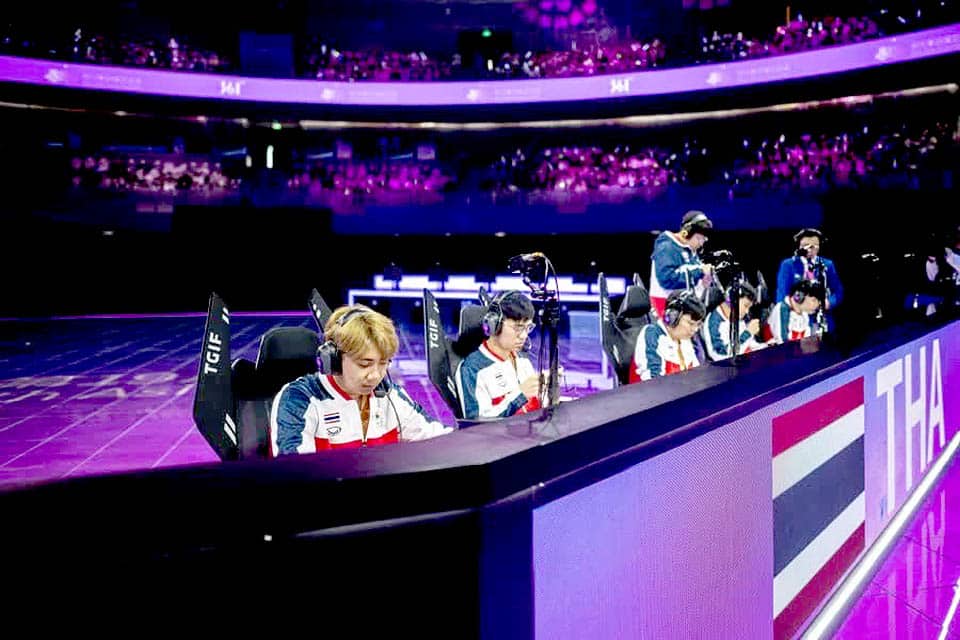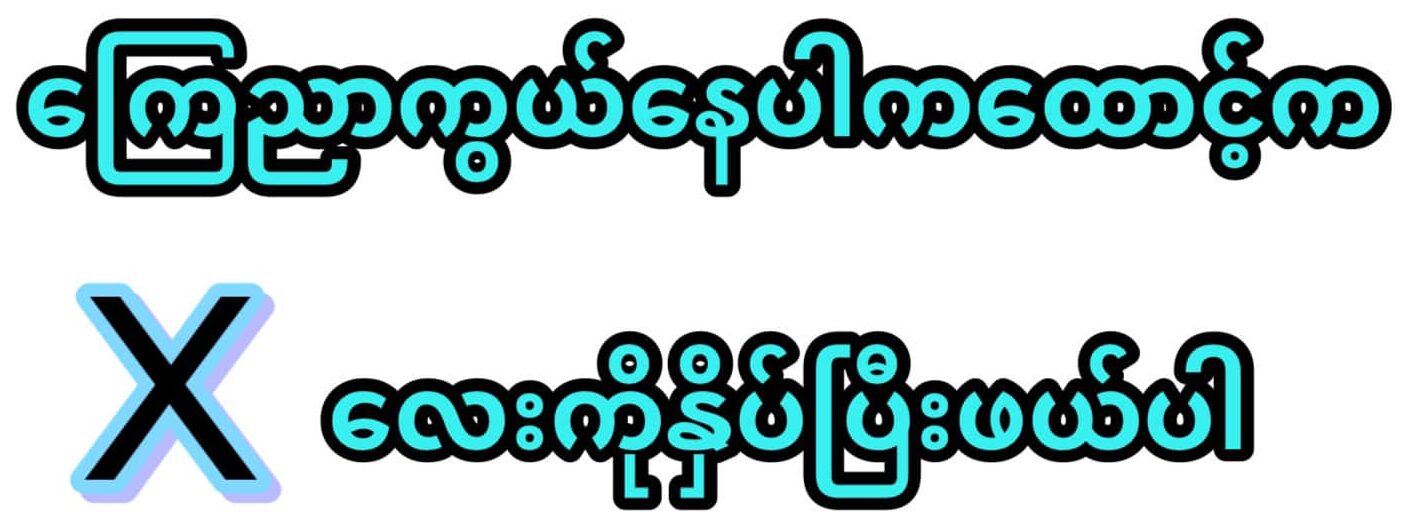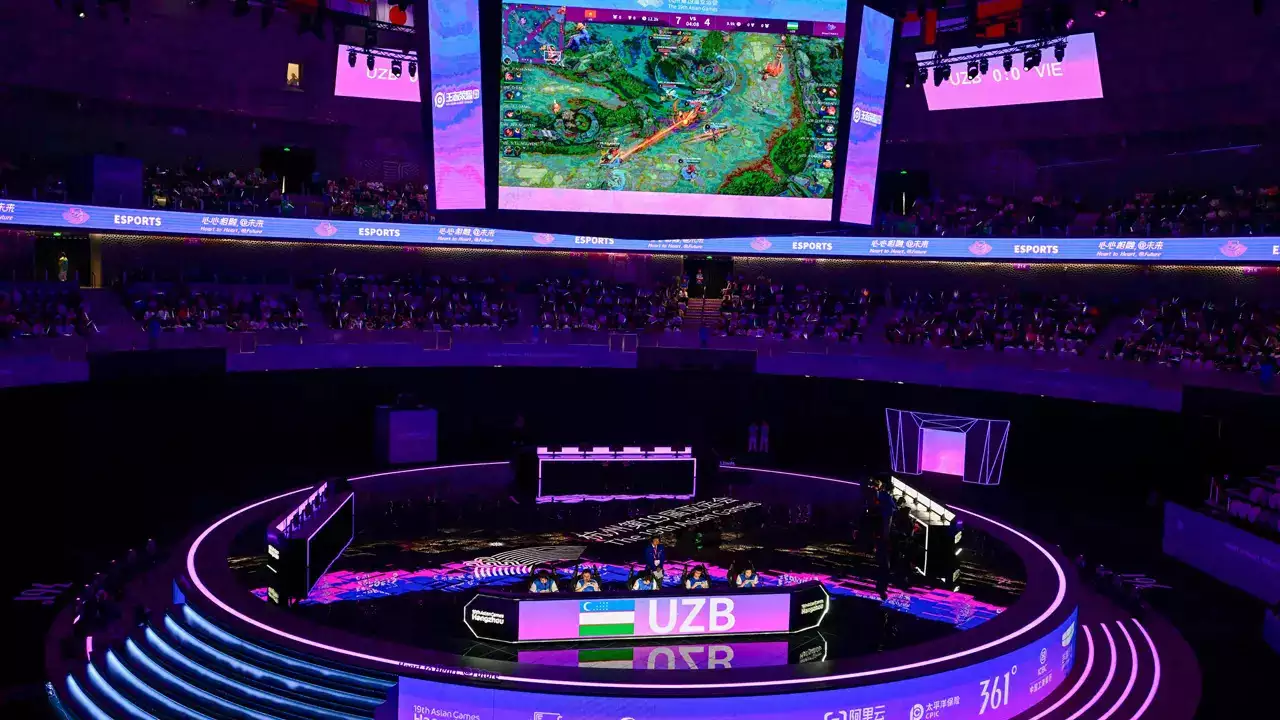Esports, the fast-growing world of competitive video gaming, has officially marked its presence as medal events at the Asian Games, an event often referred to as the “Asian Olympics.” This milestone took place in Hangzhou, China, a bustling e-commerce hub, where esports enthusiasts and players from various countries converged to compete for glory and recognition.
In the inaugural esports matches, Myanmar faced off against Kyrgyzstan in the Arena of Valor mobile game. The intensity of competition was palpable, with spectators filling the stands, waving penlights, and creating an atmosphere reminiscent of a live concert. This was a historic moment for esports, as it transitioned from an exhibition event in the previous Asian Games in 2018 to an official part of the competition, complete with medals at stake.

In the first completed match of the day, Myanmar emerged victorious, claiming victory in the Arena of Valor mobile game. Meanwhile, Hong Kong secured a win against Taiwan in the same multiplayer online battle arena (MOBA) game. The players basked in the excitement, with dreams of clinching a coveted medal. Chan Tsz Hin, a 22-year-old player from Hong Kong, expressed his dedication, stating that he plays the game for eight to ten hours daily. He emphasized that his team was striving for a medal, regardless of its color.
The inclusion of esports as official medal events in the Asian Games has sparked debates about whether esports can be classified as “real” sports. Concerns about gaming addiction have also emerged. However, the undeniable growth potential of the esports market cannot be ignored. Esports have captured the attention of millions of fans worldwide, with professional players, teams, and leagues gaining substantial followings and sponsorships.
The Asian Games esports program spans nine days and features seven gaming titles, including two mobile games. The diversity of games showcased highlights the broad appeal of esports, catering to different genres and platforms. This inclusion signifies the maturation of esports as a competitive discipline, further solidifying its status as a global phenomenon.
One notable figure in attendance was Hideaki Omura, the governor of Japan’s Aichi Prefecture, which is set to co-host the next Asian Games in 2026 along with Nagoya, its capital. Omura visited the China Hangzhou Esports Centre, a dedicated venue built exclusively for esports, and marveled at its scale and sophistication.
He acknowledged the significance of esports in China and expressed his confidence that esports would continue to expand. Aichi Prefecture is poised to embrace esports as an official event in the 2026 Asian Games, reflecting the global trend and the sport’s growing importance.

The inclusion of esports in prestigious international events like the Asian Games and discussions about its potential inclusion in future Olympics have catapulted esports into the mainstream. The International Olympic Committee’s inaugural Olympic Esports Week in Singapore in June served as a groundbreaking event that opened doors for esports to be considered for future Olympic participation.
As esports continue to gain recognition, it is evident that this digital revolution is here to stay, captivating audiences and athletes alike on a global scale. The journey has only just begun for esports, and its future holds exciting possibilities.











